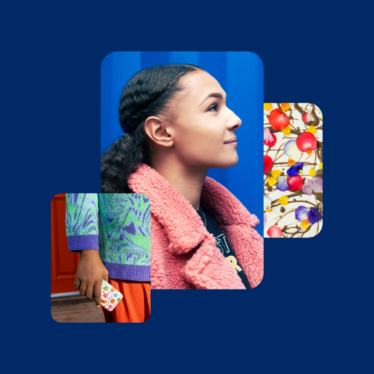
Yes, Pinterest is still a thing. No, it’s not just for aging Polyvore and Tumblr-era millennials clinging to days of old. In fact, Pinterest is trying to engage the young people on its platform to right the wrongs of those who came before them, through a new campaign that shares digital wellness factoids and urges users to pin for good in order to “create a better internet, together.”
The call-to-action campaign was announced in honor of Safer Internet Day, a global initiative celebrated annually on the second day of the second week of the second month, which calls on multilevel actors to make the internet a better place through policy and social campaigns addressing cyberbullying, digital well-being, and other pressing online issues.
Twitter is getting rid of its free API tier. That’s a nightmare for accessibility activists.
This year’s Safer Internet Day theme is “together for a better internet.” It’s also the 20th anniversary of the initiative, and while a lot of progress has been made to create safer spaces for people of all identities — and let them participate authentically in the social nature of the World Wide Web — there’s still a lot of work that needs to be done.
Pinterest, for its part, is choosing to address its users directly, using the gathering places its site encourages: Pinterest photo boards.
The site partnered with nonprofit social campaign #HalfTheStory to release a dedicated board filled with pinned resources for better internet practices, mental health support, and digital safety. #HalfTheStory was founded in 2015 by Larissa May, who went viral for sharing her mental health struggles online. Since then, the formal organization spawned from her experiences has partnered with educational institutions, government agents, and companies to create digital well-being standards. #HalfTheStory also offers a four-week program called Social Media U, which teaches young people ages 12 to 14 how to build healthier internet practices.
“As digital well-being pioneers, our mission has always been to empower the next generation’s relationship with technology, and that starts with unpacking the toll it takes on our mental health,” May wrote in the campaign’s announcement.
The new board is similar to safety-focused efforts found on other sites, like Instagram’s Family Center, Snapchat’s Family Center, or TikTok’s many in-app resource hubs.
On the dedicated Safer Internet Day Pinterest board, users can click on each post — like Safer Internet 101, How Good Mental Health Hits Different, and Your Mental Health Checklist — to expand additional pinned resources which contain external links to nonprofits, partnerships with Pinterest users, and other helpful graphics.
Pinterest also released a new study on generational internet habits for Safer Internet Day, based on responses from users ages 18 to 25, in collaboration with research firm Morning Consult. According to the survey results, half of Gen Z users believe that negative online experiences are becoming more commonplace. In addition, according to Pinterest, “Gen Z users of Pinterest are least likely to report having had a negative experience on the platform (such as cyberbullying, discrimination based on gender or race, or violent content) than on other major platforms.”

Credit: Pinterest

Credit: Pinterest
One explanation for this could be that Pinterest has (in the eyes of its users) retained its single-use nature, not veering far from the original 2010 purpose of letting visitors collect useful links, images, and scrapbook-like digital materials all in one place. While the site encourages social networking through friend lists and comments, and has even toyed with video content, the point of Pinterest is more reserved than others. It’s an outlier among a litany of platforms that have expanded into networking behemoths, each co-opting the other’s purposes and weaving digital culture into nearly every facet of users’ waking hours.
That industry-wide goal has led to the overwhelming consumption of content, the normalization of posting deeply personal content to unsympathetic audiences, and a prioritization of sponsored posts and advertisements — all of which can negatively affect user mental health.
Pinterest isn’t free from blame, of course, but it’s been on a path to address the internet’s faults and the role an image-based site plays in problematic trends. In 2020, the website launched a campaign against culturally insensitive Halloween costumes after banning advertisers from promoting such products on Pinterest in 2016. In 2021, the site also banned ads featuring weight-loss, body shaming, or mentions of Body Mass Index from the platform, acknowledging the rise of unhealthy eating habits during the pandemic. The site later unveiled a new Creator Code, a series of guidelines intended to build a positive online space for creators.
This year, Pinterest says it’s committing itself even more to making the internet better. In addition to the Safer Internet Day projects, the company renewed partnerships with organizations like The Steve Fund, a nonprofit supporting the mental health and emotional well-being of young people of color, to work towards “a web-based experience for BIPOC young people to explore creative expression in connection to emotional well-being.” They also collaborate with Inseparable, a coalition of actors working to improve youth mental health through state-level and digital advocacy.
“Pinterest isn’t just about inspiring people to create a life they love,” said Pinterest CEO Bill Ready. “It’s also about inspiring the industry to join us in creating an internet that’s as positive, safe, and inclusive as possible.”
If you’re feeling suicidal or experiencing a mental health crisis, please talk to somebody. You can reach the 988 Suicide and Crisis Lifeline at 988; the Trans Lifeline at 877-565-8860; or the Trevor Project at 866-488-7386. Text “START” to Crisis Text Line at 741-741. Contact the NAMI HelpLine at 1-800-950-NAMI, Monday through Friday from 10:00 a.m. – 10:00 p.m. ET, or email info@nami.org. If you don’t like the phone, consider using the 988 Suicide and Crisis Lifeline Chat at crisischat.org. Here is a list of international resources.
https://mashable.com/article/pinterest-safer-internet-day-digital-wellbeing

